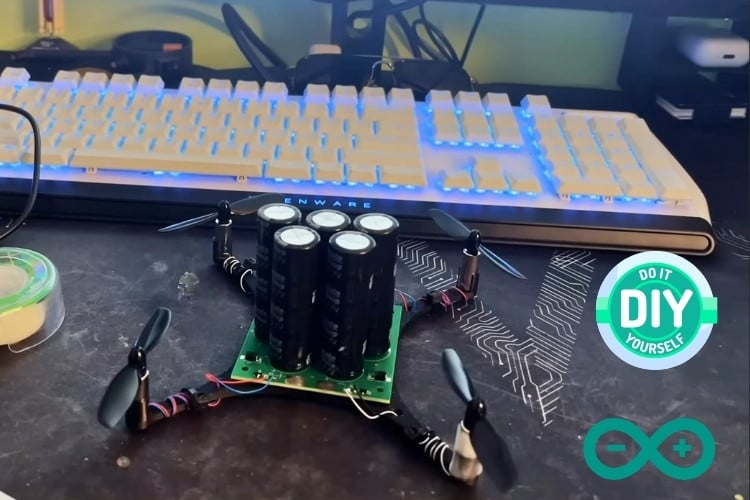
A hobbyist in the maker community recently shared an intriguing project: building a custom flight controller for a quadcopter drone powered by supercapacitors. This innovative endeavor investigates the feasibility of replacing traditional lithium-ion batteries with supercapacitors in drone technology.
The drone uses supercapacitors as its primary power source, allowing for rapid charging within seconds, which is highly advantageous for quick redeployment. However, the limited energy density of supercapacitors significantly restricts the flight duration compared to lithium batteries. At the core of this design is an Arduino Nano 33 IoT board, which provides onboard gyroscope and accelerometer sensors essential for maintaining flight stability. The drone is powered by brushed DC motors, a cost-effective choice, but their slower response time compared to brushless motors affects the overall stability and control.
In subsequent iterations, the creator experimented with lithium polymer batteries as an alternative to supercapacitors. These batteries provided better flight performance due to their higher energy density and lighter weight. While supercapacitors hold potential for future applications, further advancements are needed to overcome their current limitations in drone technology.

